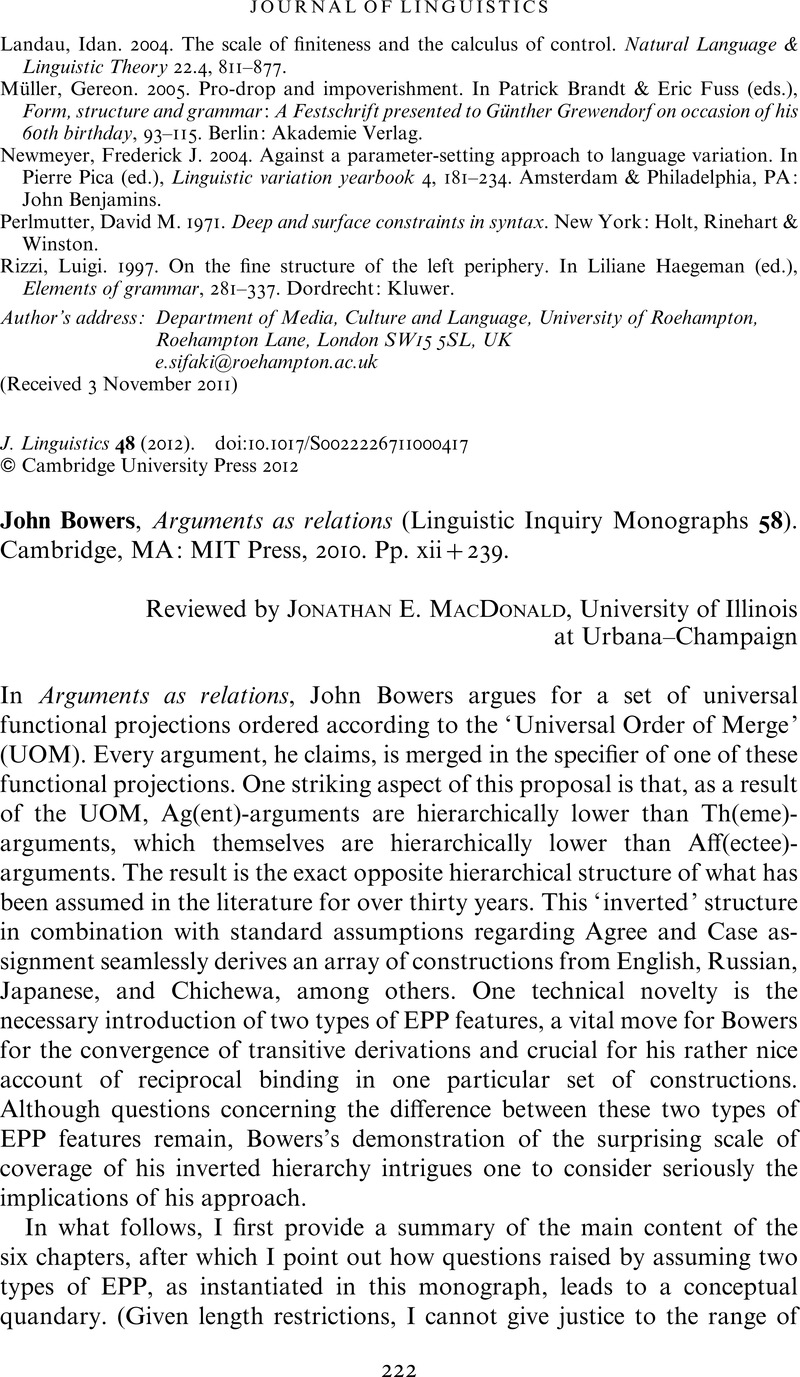Crossref Citations
This article has been cited by the following publications. This list is generated based on data provided by Crossref.
Rizzi, Luigi
2015.
Structures, Strategies and Beyond.
Vol. 223,
Issue. ,
p.
17.



